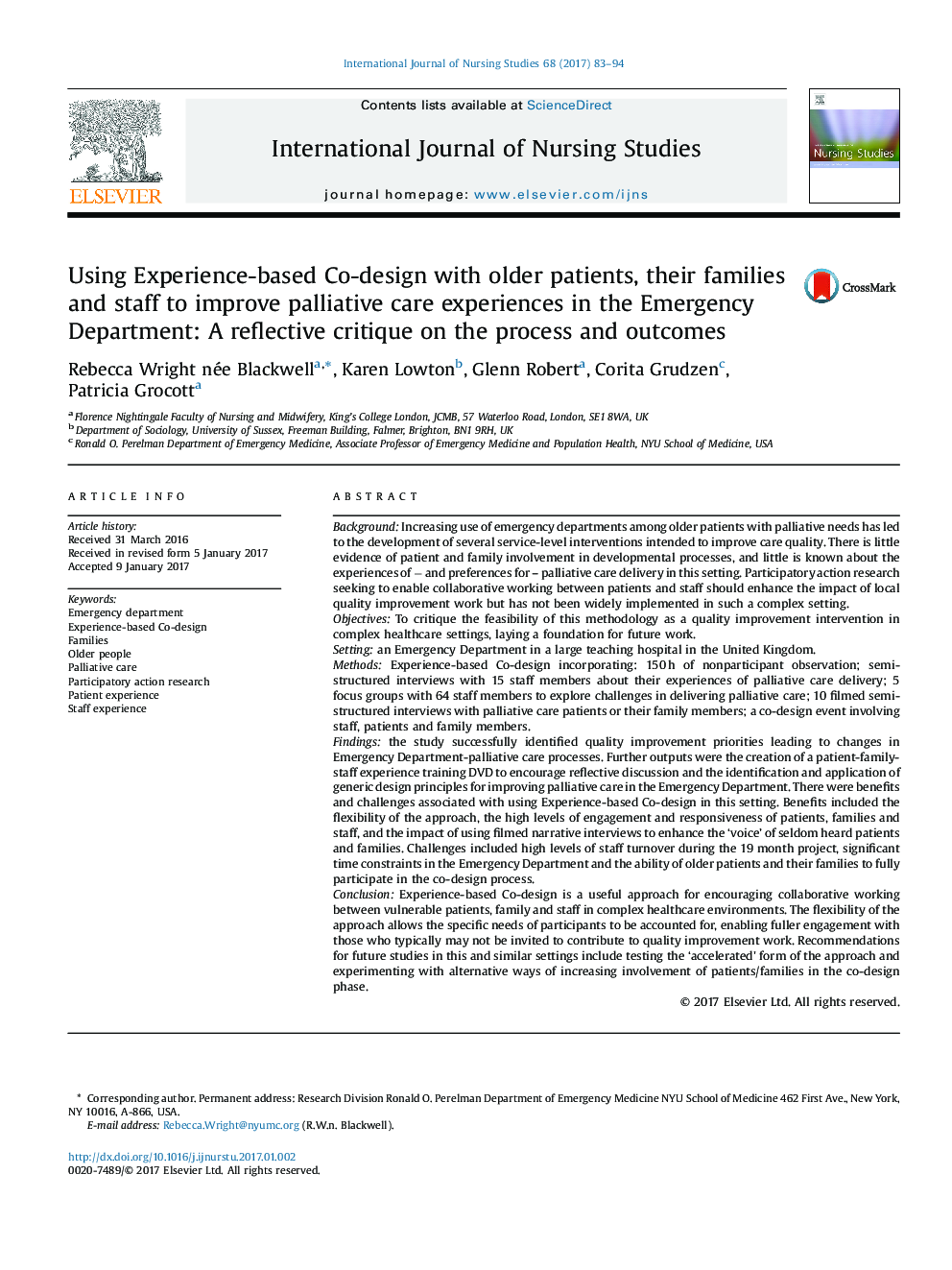| Article ID | Journal | Published Year | Pages | File Type |
|---|---|---|---|---|
| 5121029 | International Journal of Nursing Studies | 2017 | 12 Pages |
BackgroundIncreasing use of emergency departments among older patients with palliative needs has led to the development of several service-level interventions intended to improve care quality. There is little evidence of patient and family involvement in developmental processes, and little is known about the experiences of â and preferences for - palliative care delivery in this setting. Participatory action research seeking to enable collaborative working between patients and staff should enhance the impact of local quality improvement work but has not been widely implemented in such a complex setting.ObjectivesTo critique the feasibility of this methodology as a quality improvement intervention in complex healthcare settings, laying a foundation for future work.Settingan Emergency Department in a large teaching hospital in the United Kingdom.MethodsExperience-based Co-design incorporating: 150Â h of nonparticipant observation; semi-structured interviews with 15 staff members about their experiences of palliative care delivery; 5 focus groups with 64 staff members to explore challenges in delivering palliative care; 10 filmed semi-structured interviews with palliative care patients or their family members; a co-design event involving staff, patients and family members.Findingsthe study successfully identified quality improvement priorities leading to changes in Emergency Department-palliative care processes. Further outputs were the creation of a patient-family-staff experience training DVD to encourage reflective discussion and the identification and application of generic design principles for improving palliative care in the Emergency Department. There were benefits and challenges associated with using Experience-based Co-design in this setting. Benefits included the flexibility of the approach, the high levels of engagement and responsiveness of patients, families and staff, and the impact of using filmed narrative interviews to enhance the 'voice' of seldom heard patients and families. Challenges included high levels of staff turnover during the 19 month project, significant time constraints in the Emergency Department and the ability of older patients and their families to fully participate in the co-design process.ConclusionExperience-based Co-design is a useful approach for encouraging collaborative working between vulnerable patients, family and staff in complex healthcare environments. The flexibility of the approach allows the specific needs of participants to be accounted for, enabling fuller engagement with those who typically may not be invited to contribute to quality improvement work. Recommendations for future studies in this and similar settings include testing the 'accelerated' form of the approach and experimenting with alternative ways of increasing involvement of patients/families in the co-design phase.
